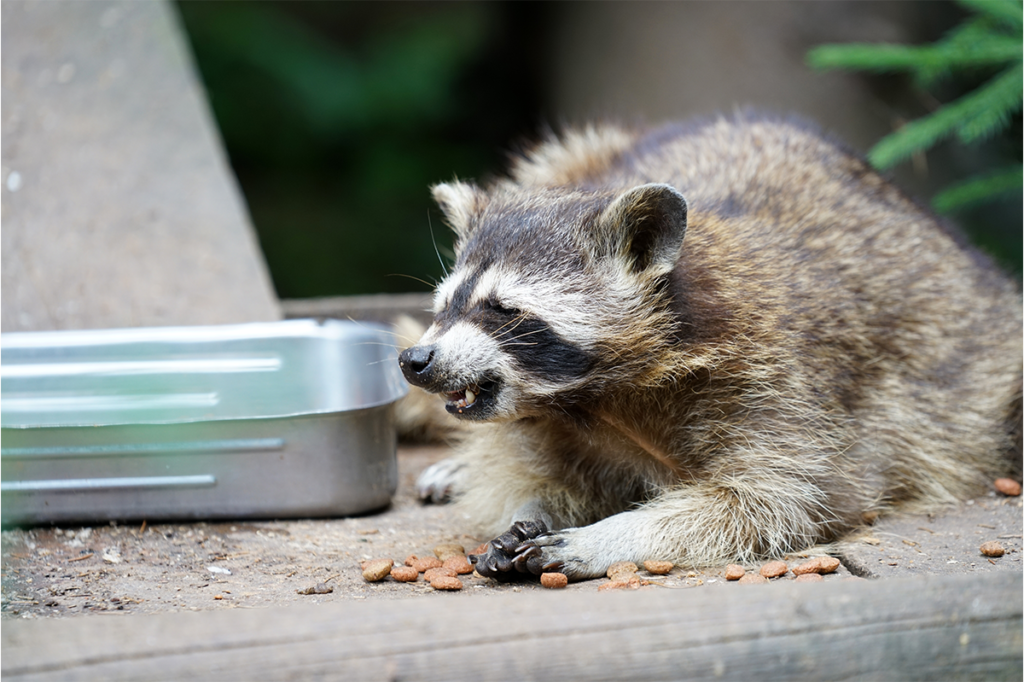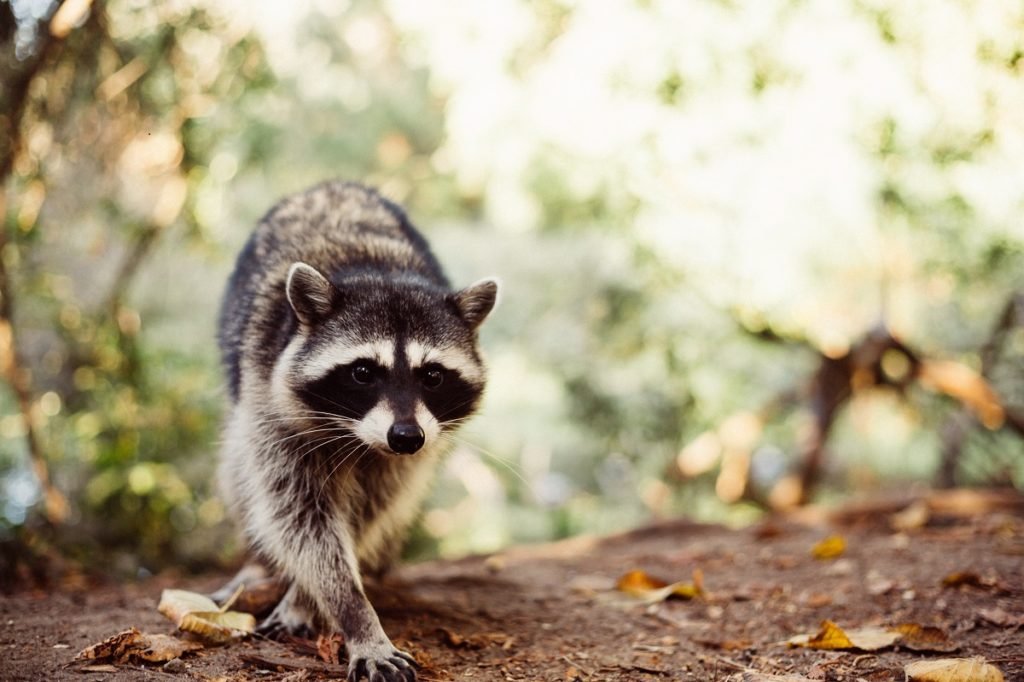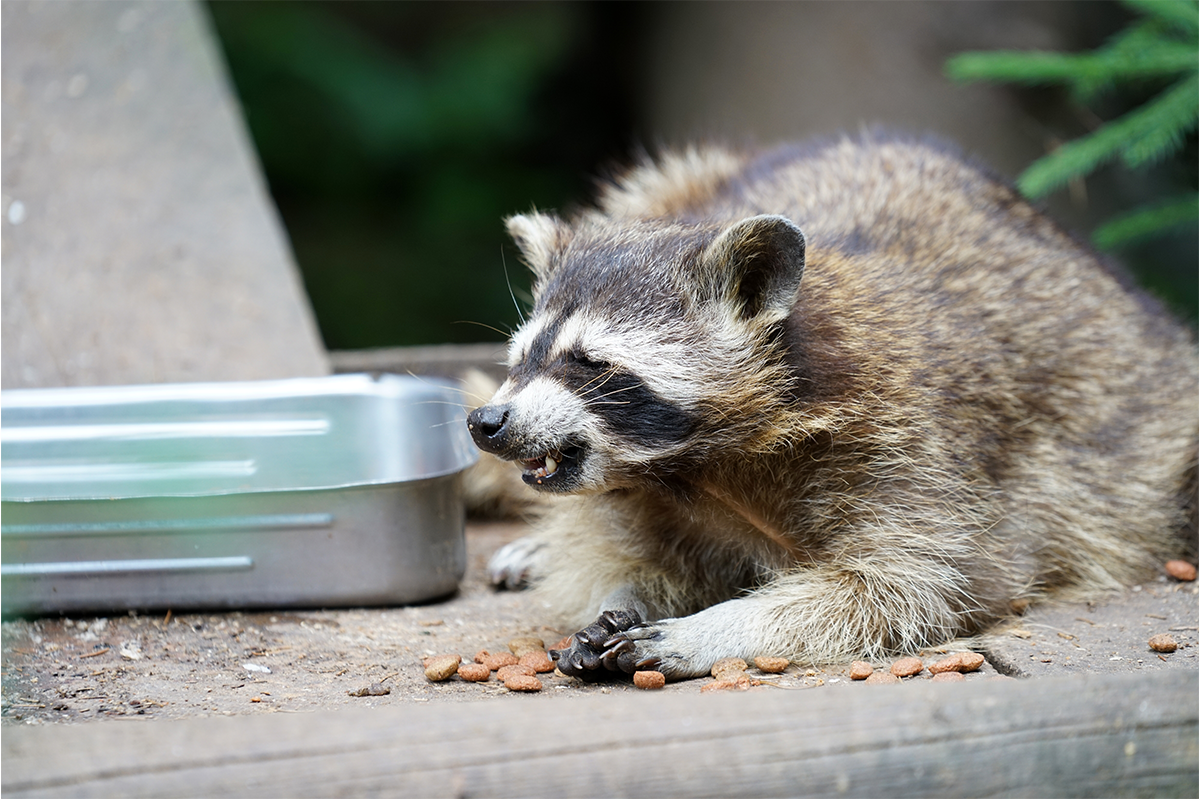The issue of raccoon removal has been on the minds of many homeowners lately, as spring approaches. From the spread of infectious diseases to the destruction of property, raccoons have become a persistent nuisance in many areas of the country. Therefore, it is essential for us to be knowledgeable about the various methods and solutions available for raccoon removal.
Let’s discuss the most effective methods for removing raccoons from residential areas. We will discuss the importance of understanding both humane and inhumane options as well as how each could be chosen in various scenarios. Additionally, let’s look at why it is important to seek professional assistance when dealing with raccoon infestations and how this decision can save both time and money in the long run.
As well, we should consider how community involvement plays a role in preventing future infestations. With this information in hand, readers will gain a better understanding of how they can effectively deal with any potential raccoon problems they may face.
What Is a Raccoon?
Raccoons, furry creatures that are adored by many people, are mischievous mammals of the Procyonidae family. They look like they have black masks around their eyes, and are native to North America. These animals are known to be nocturnal, intelligent, and highly adaptable.
The presence of raccoons in urban areas is a common problem due to their scavenging behavior. They are known to cause damage to property and pose a potential health threat due to their presence near human dwellings. Raccoons mainly feed on fruits, vegetables, insects, small mammals, and birds; however, they can also consume pet food left outdoors or raid garbage cans for food scraps. In addition, raccoons can carry parasites and diseases that can be harmful to humans, such as rabies, leptospirosis, roundworms, and salmonella.
Therefore, it is important to take appropriate steps to ensure the safe removal of these animals from residential areas in order to prevent any possible health risks associated with them. In order to accomplish this safely and effectively, it is important to follow logical guidelines for deterring raccoons from properties, such as eliminating potential sources of food or shelter near buildings and keeping trash securely covered so as not to attract them. Additionally, professional wildlife control services should be contacted in order to properly remove the animal from residential areas without compromising safety or inflicting harm to the animal itself.


What Problems Can Raccoons Cause?
Raccoons are often seen as cute and cuddly animals, but they can cause a lot of harm in residential areas. Not only can they spread disease, but they can also damage property and carry parasites that can be harmful to humans and pets. It is important to know how to remove a raccoon from the ceiling if one decides to take up residence there.
Raccoons will dig through gardens and trash cans for food, which can be both messy and expensive to clean up. In addition, they have been known to chew through electrical wires, creating a fire hazard. They may also enter homes or buildings through small openings such as vents or chimneys, which further increases the risk of property damage or disease transmission. If left unchecked, raccoons can become aggressive towards humans or pets when trying to protect their territory or young.
It is important for homeowners to know how to identify signs of raccoons on their property and how to safely remove them. DIY methods include using repellents such as ammonia-soaked rags placed near entrances or loud noises like whistles, bells, and horns that may encourage the animal to leave the area without harming it in any way. Live traps are another method used by professionals, where the animal is caught peacefully and then relocated away from populated areas in accordance with local regulations.
Understanding Raccoon Behaviour
Raccoons have long been a source of fascination, often seen as mischievous and cunning. These furry creatures can sometimes create problems for homeowners. Understanding raccoon behaviour is key to successful DIY raccoon removal, ensuring that the animals can be removed humanely and safely.
Raccoon behaviour varies according to region and season, making it essential to study their habits before any removal is attempted. They are generally nocturnal animals, though they will often come out during the day if they feel safe. Raccoons have evolved to live in both urban and rural areas with relative ease. During the summer months, they may begin searching for food earlier in the evening than usual, while females with young kids may look for nesting sites during the springtime.
By understanding these behaviours, it is possible to accurately assess the location of a raccoon family or individual animal on your property so that you may contact professionals accordingly. It is important to take appropriate safety precautions when dealing with wildlife, such as keeping children away from the area.
Signs of Raccoon Infestation
Raccoons are a common nuisance to many households, and their presence can be identified by the signs of infestation. It is important to be aware of these signs to know that animal pest removal is required.
The most common sign of a raccoon infestation is the presence of droppings. Raccoon feces are usually dark in colour, cylindrical in shape, and contain seeds or berries. They also have a strong odour that can be detected from a distance. Other signs include flattened vegetation, tracks on lawns and mud walls, overturned garbage cans and compost bins, and damaged birdhouses or other structures.
Identifying these signs can help people take action before an infestation gets out of hand. Knowing what to look for will ensure that people are better equipped with the knowledge they need to protect their property from raccoons and other animal pests. Taking steps such as blocking entry points around buildings and eliminating potential food sources can go a long way towards preventing raccoon infestations.
The Dangers of DIY Raccoon Removal
DIY raccoon removal can be a dangerous undertaking for the average homeowner. Raccoons are wild animals and can become aggressive when threatened. In addition, they may carry diseases such as rabies, leptospirosis, and roundworms.
Homeowners should understand that DIY methods may not only be ineffective but could cause further damage due to the presence of these wild creatures. It is best to contact an experienced animal control specialist who knows how to safely and efficiently trap the animals without putting humans or other wildlife in danger.
When dealing with raccoons, safety should always come first. Taking the proper precautions and working with trained professionals will ensure that everyone remains safe while the problem is addressed in an efficient and humane way.
Risks of Leaving Raccoons in Place
It is important to be aware of the risks associated with leaving raccoons in place within a home environment. Raccoon populations can quickly increase, leading to overcrowding and competition for resources such as food, water, and shelter. This can result in increased stress on the animals, which can lead to a multitude of health issues such as malnutrition, disease transmission, and even death.
Additionally, raccoons left in place may also pose a risk to humans through contact with rabies-infected animals or property damage caused by their scavenging. For example, they may attempt to enter homes through openings such as windows or holes in the walls, which could cause extensive damage if not addressed quickly. Additionally, they have been known to dig up gardens and yards for food sources like insects or small mammals.
It is therefore important to work with local authorities to assess the risks associated with raccoon removal from any given area. By doing so, it is possible to create an effective plan that minimizes these risks while still protecting human health and safety. With proper planning and assessment, it is possible to ensure that raccoon removal is done responsibly while still providing a safe environment for citizens of all ages.
Reasons to Hire a Professional for Raccoon Removal
It can be said that one of the greatest risks to our environment and public health is leaving raccoons in place. Ironically, this statement holds true when it comes to removing them as well. Hiring a professional for raccoon removal can be the best way to ensure safety and peace of mind for both your home and neighbourhood.
Anyone considering taking on a raccoon problem would do well to hire an experienced wildlife management professional. Professional services come with several benefits that make it worthwhile. With their expertise, you can rest assured knowing that your home will be free from any further pest issues or damage caused by raccoons. Additionally, they are able to identify potential risks associated with the removal process and will take necessary precautions accordingly. They also have access to the right products and the training required for successful removal, which eliminates any health risks that could be posed by using improper methods or products.
By hiring a professional for raccoon removal, you can be confident that the job will be done right—quickly, safely, and humanely—so that you may enjoy the peace of mind that comes with knowing your home is safe from these animal pests once again. This solution provides an opportunity for everyone involved to benefit in some way; homeowners get rid of their raccoon infestation while professionals get paid for providing quality services they can be proud of; all while contributing positively towards public health efforts in the community as a whole.
Cleaning Up After Raccoons
Raccoons are a common nuisance for homeowners, with studies showing that almost 40% of all households have experienced a raccoon problem at least once. Cleaning up after these pests can be an arduous task, but it is important to do so in order to protect your home and family. Again, hiring a professional for raccoon removal is the best course of action due to the risks associated with cleaning up after them on your own.
It is important to note that raccoons may carry diseases and parasites that can be hazardous if not handled properly. They may also leave behind droppings or urine, which can contain bacteria or viruses that can cause serious health issues if inhaled or ingested. Therefore, it is essential to consult a professional who can provide the safety and sanitation protocols needed to clean up after the animals safely. Professional services also offer disinfectant sprays, which may be necessary for killing off any lingering germs from the raccoon’s presence.
Attending to this issue as quickly as possible is key in order to avoid any future problems, such as infestations of other animal pests or even further damage caused by the animals themselves. Hiring a professional ensures that you are doing what you can to protect yourself and your family, while also providing peace of mind knowing that the work will be done correctly and efficiently.
How to Deter Raccoons From Entering Your Home
Raccoons can be a nuisance to homeowners, as they have a tendency to enter homes and yards in search of food. It is important to understand that the best way to deter raccoons is not through trapping or killing them, which is both dangerous and illegal in many areas, but rather by preventing access to your property. With that in mind, experts recommend several strategies for keeping raccoons away from your home.
One possible solution is to remove any sources of food from around your property. This includes properly sealing garbage cans, removing bird seed from feeders, and regularly cleaning up fallen fruit or nuts from trees or gardens. Additionally, it may be necessary to install fencing or other barriers around the perimeter of the home; this will help prevent raccoons from entering the yard and potentially finding a way into the house itself.
Finally, it’s also important to make any potential entry points inaccessible by placing screens over attic vents, chimneys, and sealing other openings into the house. Plugging these areas can help keep raccoons out while still allowing air circulation inside the structure. Taking these steps can help you keep raccoons away from your home without resorting to more drastic measures that may endanger other wildlife or yourself.
The Last Word in Raccoon Control
The presence of raccoons in residential areas is a public health concern. It is important to consider the various methods of removal that are available. Professional services offer humane solutions for raccoon removal with the goal of finding a balance between protecting people and their environment while respecting the rights of the animal. Deterrents should be used as a first line of defense, but they may not always be effective in all situations. Raccoons are protected by law in some cases, so it is essential to take local regulations into account when considering any approach to removal.
It is important to research all available options for raccoon removal before taking action. Professional services are often the most effective means of removing animals from residential areas without causing harm. Deterrents can also be used as an additional method of discouraging raccoons from entering an area, but it is important to remember that these approaches may not always work. Finally, it is important to understand local laws and regulations regarding wildlife protection before attempting any type of removal or relocation effort.
Wildlife Pro Can Help With Every Animal Pest Situation
Wildlife Pro is a professional wildlife removal and relocation service that specializes in humanely removing raccoons from residential areas. Our team of experts has the experience and knowledge to safely and effectively remove raccoons from any property, while taking into account local laws and regulations. We also offer preventative services, such as sealing entry points in your home to help keep raccoons away. Contact us today to get a free quote and arrange an on-site visit, or learn more about our services and how we can help you with your raccoon removal needs.
Read More: Get Rid of Raccoons

